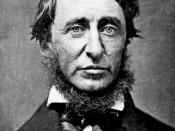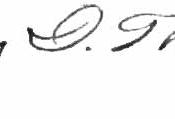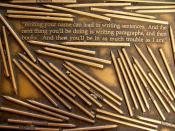Thoreau and Civil Disobedience "That government is best which governs least,"� Thoreau once said. Thoreau's life was full of protests and objection to government and is shown through his actions and his essay On the Duty of Civil Disobedience. He lived his life the way he chose to live it and did not conform to any other person, other than himself. Knowing that the only person that can change your own life is yourself, he committed his actions Henry David Thoreau was born on July 12, 1817 in Concord, Massachusetts. Unlike most leading writers of his time, Thoreau cam from a family that was neither wealthy nor distinguished (Litwack 334). The other children in town were not particularly fond of him because of his seriousness and his reluctance to join their games (Schneider 4). His father made pencils in a small shop and his mother took in boarders (Litwack 334).
In 1828, Thoreau attends Concord Academy then attends Harvard University in 1833. After graduating from Harvard University in 1837 he starts his career in writing by keeping a little journal of his daily activities (Schneider 1).
There were few among the farmers and merchants of Concord who understood Thoreau's unrest and intellectual interests, so it was not surprising that he developed an attachment to those who did. The first to recognize his intellectual potential was Ralph Waldon Emerson. Emerson had known of Thoreau as a bright young college student for whom he had written a letter of recommendation, and Thoreau had read Emerson's Nature during his senior year at Harvard. Throughout the next few years, Emerson served as Thoreau's intellectual mentor, opening his library to the young graduate, introducing him to distinguished guests at the Emerson home, and frequently sharing ideas with him. From Emerson, Thoreau gained both a...


